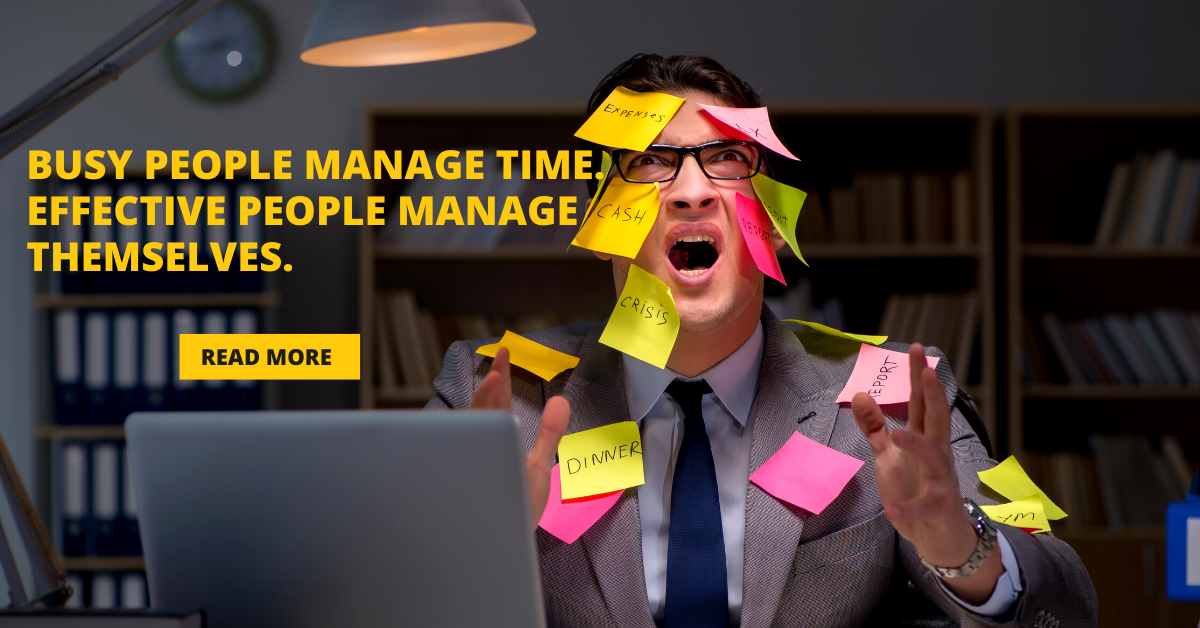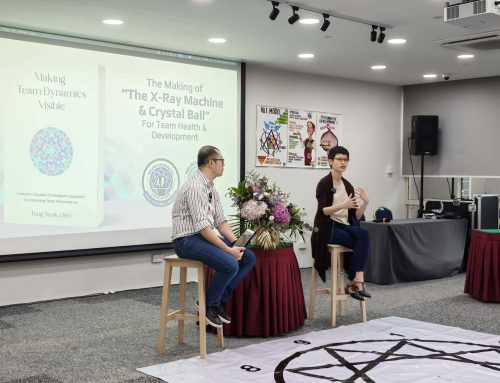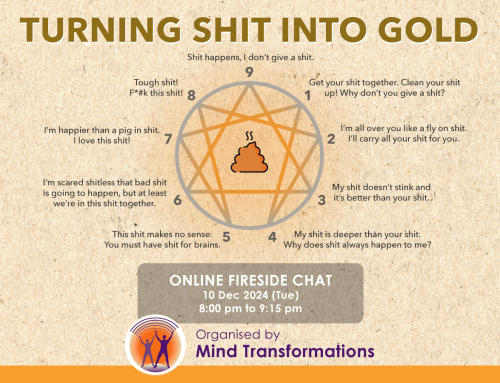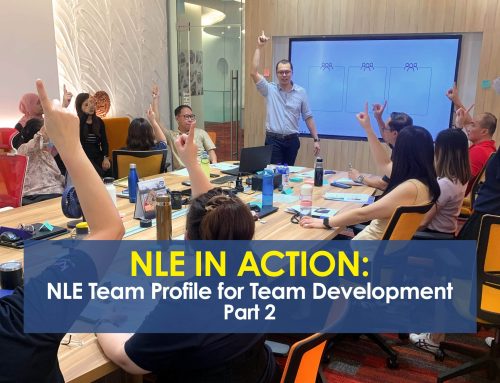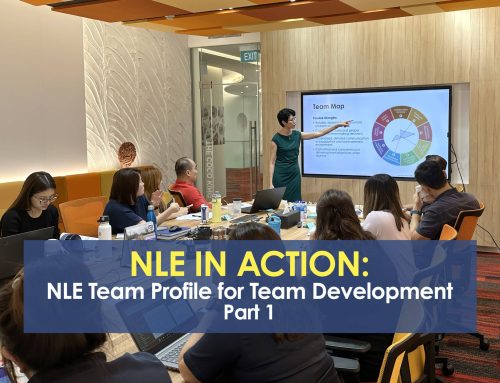Do you feel like you're always busy but not really getting anywhere? If so, you're not alone. A lot of people find themselves in this situation. They work hard but don't seem to be making any progress. In fact, they may even be going backwards. This is because being busy doesn't equate to being productive or effective. Being productive means being strategic, intentional and clear about your process of getting closer to your goals.
Busy people usually find themselves busy because they are constantly managing time. They're always running from one thing to the next, never really sure if they're on track or not.
People who are truly progressing in their professional, relational, physical, and emotional growth & well-being manage themselves rather than time. They know where they want to go and NOT simply work hard, but also focus on strategic areas of development that give them extra leverage.
By developing your multi-intelligence capacity, you can make time your ally, not your enemy, that you have to fight with!
There are many productivity strategies and hacks accessible, but if you truly want to boost your productivity and performance in your career, business, or personal life, it's all about changing your inner programming and retraining your nervous system.
Here are some areas of development you can consider:
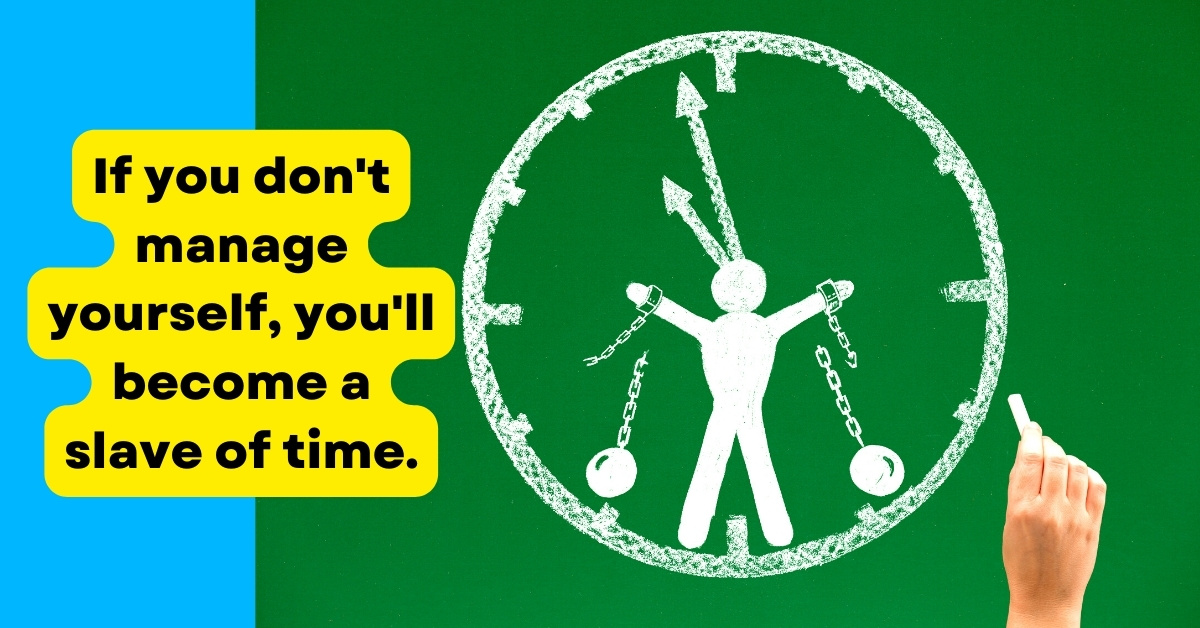
1) Shift to a growth mindset of transformation rather than remaining in the status quo.
A growth mindset is the belief that you can improve and grow through incremental habits, whereas a fixed mindset is the belief that things are just the way they are, then why bother to change?
When you have a growth mindset, you're not afraid of change because you know it's an opportunity for learning and development. You see challenges as something to overcome instead of something to avoid. This allows you to take risks and fail forward fast, which are essential for growth.
People with a fixed mindset often stay in their comfort zone or keep on doing things they are familiar with. They don't want to take risks because they might fail. This limits their ability to grow and develop. The challenge is, when unfortunate events hit them, they are usually the first ones to suffer the consequences.
If you want to increase productivity and elevate performance, it's important to shift from a fixed mindset to a growth mindset.
In order to be productive, we have to first change our mindset from one of busyness to productivity. A productivity mindset is one that understands that being busy does not mean you are effective or efficient. In fact, many times, being constantly busy can actually mean you are inefficient and not productive. A productivity mindset is focused on results and accomplishing goals rather than just being busy for the sake of being busy or no choice.
Mindset change has been overrated. In order for mindset shifts to take place effectively, we need to recondition our nervous system to respond differently. We need to change the way we think, feel, and behave on a daily basis in order for productivity mindset changes to take effect.
You might want to set an intention for the day or week ahead with a productivity focus or discipline. For example, “I will only check my email three times today” or “I will take a break every hour to walk around for five minutes.”
It is helpful to become aware of your own thoughts, communication styles, physical feelings and emotions throughout the day. Notice when you are feeling stressed, uncomfortable or anxious about something. These are usually clues that you are operating from a place of busyness instead of productivity.
You may practice and rehearse with visualisation-mind-body exercises to prepare your senses to respond in a different way to these pressures. What sort of mentality would you need in order to respond more effectively? How would you appear, sound, act, and communicate with this new level of attitude?
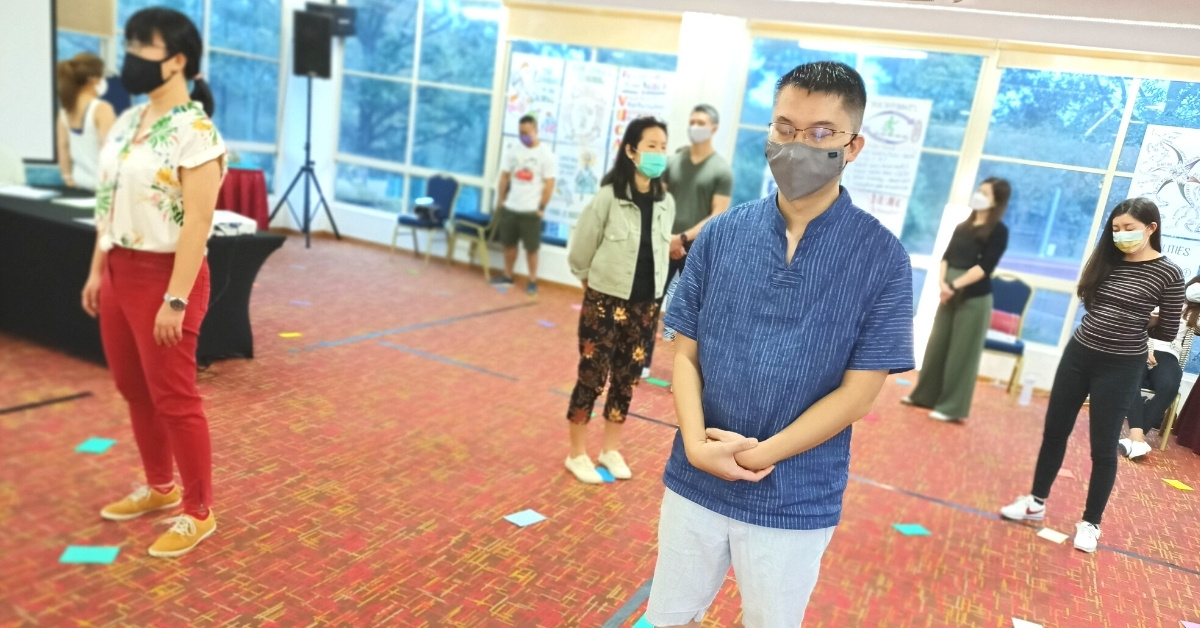
Practitioners working through themselves on how they can show up with a new set of attitude, mindset shifts and behaviours in their situation.
Start by utilising a pattern interrupt to disrupt your regular unproductive behaviours, allowing you to connect yourself with this new level of mindset changes.
Book a consultation to discuss how you can actualise transformational mindset shifts in your life that elevate your performance
2) Uncover the roots of your stress.
Just like with procrastination or disengagement, busyness is a symptom rather than the root cause of our stress, fears and discomforts.
When we are unclear about the source that is driving our behaviours of busyness, we tend to react to situations or get ourselves busy doing other things rather than those important matters that we are supposed to focus on. That's where people get lost in distractions, burnout and addictive habits while claiming that they have "no time!"
When we uncover the real reasons behind our busyness, we can address them at their source. Only then can we find true productivity and flow in performance.
Some of the common roots of stress that lead to busyness are:
Take a moment to sit with each one and see if you can uncover the truth behind your stress and busyness. Do any of these sound familiar to you?
There is usually some sort of story or conditioning that we are holding on to that is not serving us anymore, and we don't even realise it. Once we become aware of these stories, we can rewire ourselves differently.
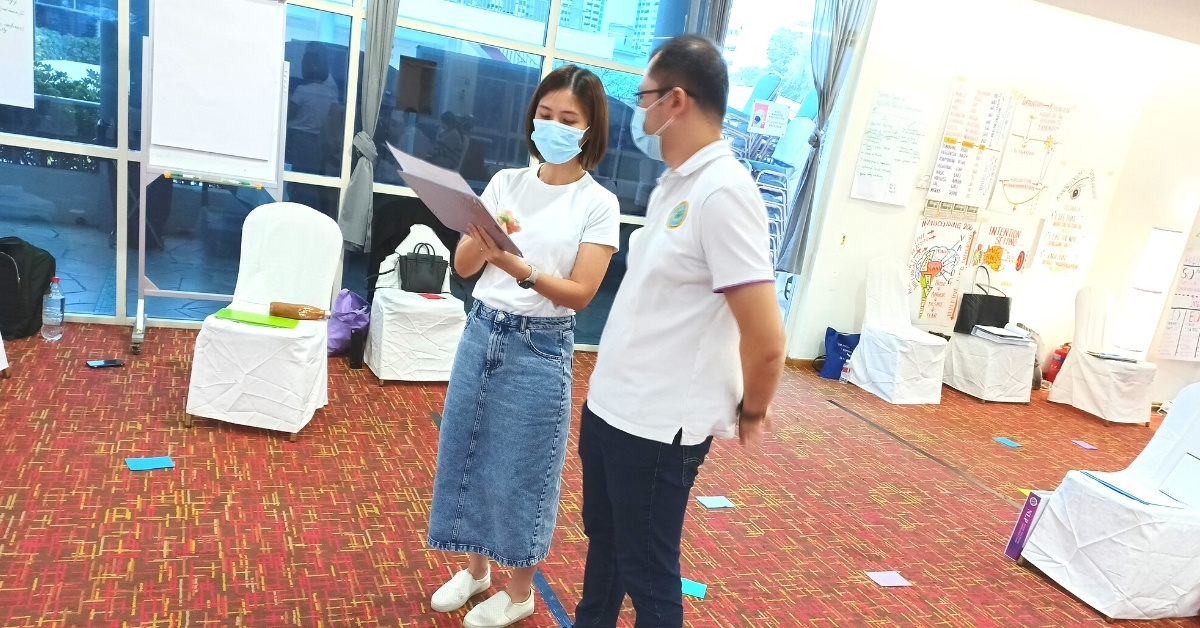
Breakthrough in your performance & productivity comes from deep inner work by acknowledging your subconscious blindspots and expanding your resourcefulness on a multi-dimensional level.
If you want to uncover the roots of your stress, book a consultation below and we'll be more than happy to guide you through.
By understanding and addressing the real reasons behind our busyness, we can find true productivity and flow in performance. Otherwise, we'll just be running around in circles, getting nowhere fast.
3) Energy management, not time management!
“The number of hours in a day is fixed, but the quantity and quality of energy available to us is not.”
Tony Schwartz and Jim Loehr in The Power of Full Engagement: Managing Energy, Not Time, Is the Key to High Performance and Personal Renewal.
Having more time doesn't necessarily guarantee a better performance and result. It is our quality of energy management that does.
You can bring your greatest effort to whatever task arises, whether it's being 100% present in conversations, offering valuable ideas in a meeting, or diving deep into a key activity by managing your energy. You can get results on an exponential level greater than the incremental progress you might make with time management methods.
In order to manage your energy, you need to understand the four main sources of energy:
It's not about cramming more into each day, it's about making sure that we have the optimum alignment from our mental to our spiritual intelligences to renew and rejuvenate our energy tanks.
The challenge that a lot of professionals, leaders, and executives face is to rely on just one energy source to get through the day, such as our mental willpower. Not only that, we deplete our energy by escaping into unproductive activities and entertainment, which gives us the impression of being productive!
It is an unsustainable way to live and work because it leads to depletion, burnout, and resentment.
A sustainable way to productivity is by learning how to integrate all four sources of energy so that we can renew ourselves throughout the day.
This doesn't mean that we have to go on a month-long vacation or quit our jobs. It can be as simple as taking a 20-minute walk in nature, listening to calm music for relaxation, or to adjust our posture and breathing.
A practical and powerful approach to expand your energy capacity is to tap your emotional and physiological states.
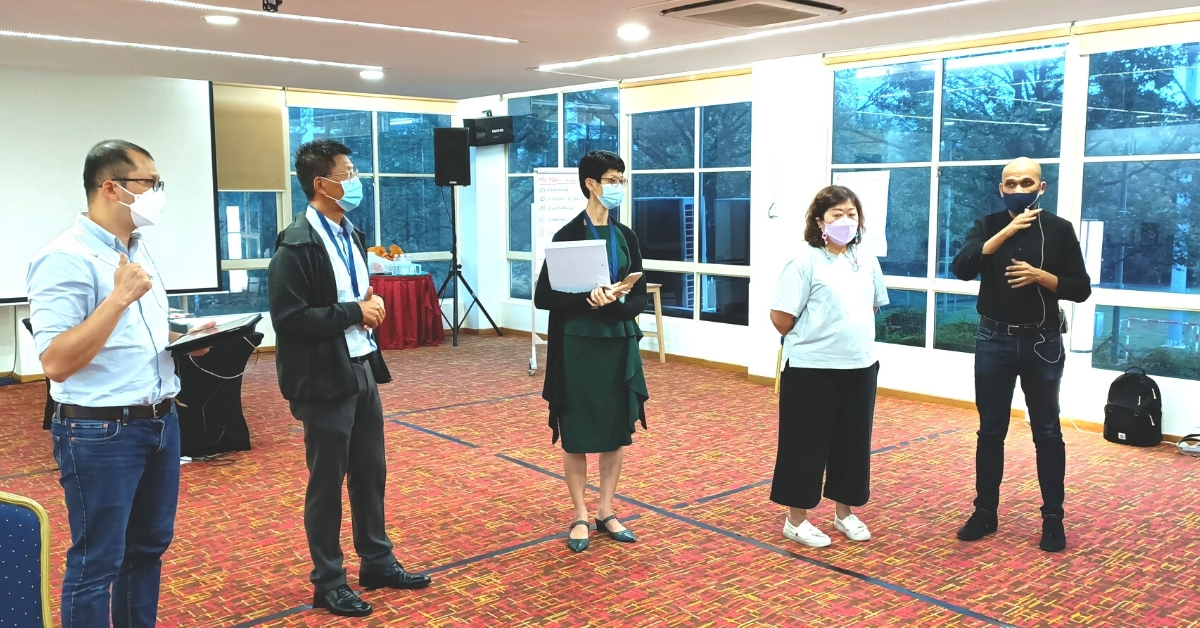
Executive Coach Trainer, C-Suite Business Leader and Facilitator based in Mauritius with 15+ years of leadership & HR Director experience, Manish Bundhun, sharing with executive coaches on how to optimise & work with multiple energy states for a high level of performance in coaching senior leaders.
When you feel low on energy, check in with yourself:
From there, you can take small actions that will lead to big changes in your productivity and performance.
So the next time you're feeling overwhelmed and overworked, remember that it's not about time management. It's about energy management. And you have the power to change that.
If you want to learn more about how to strengthen your energy state management for optimum growth and performance, book a consultation below.
4) Develop a systems thinking approach to generate multi-dimensional views and options.
The world is becoming increasingly complex and the pace of change is accelerating. To be successful, you need to develop a systems thinking approach to generate multi-dimensional views and options.
Many people are caught in their busyness since they compartmentalise things and people in a linear manner. When they hit a roadblock because of the restricted viewpoint on the problem or challenges, they become fatigued with many activities that go nowhere. Or, they try to solve the issue and exhaust themselves fighting with the problems. It is where people react, rather than respond effectively.
A systems thinking approach helps you see the big picture, identify patterns and trends, and understand how different parts of a system interact with each other. It also enables you to see the implications of your actions and make decisions that are in alignment with your goals.
The benefits of a systems thinking approach are far-reaching. It can help you become more strategic, innovative, and agile in your thinking. It can also help you build better relationships, foster collaboration, and make better decisions.
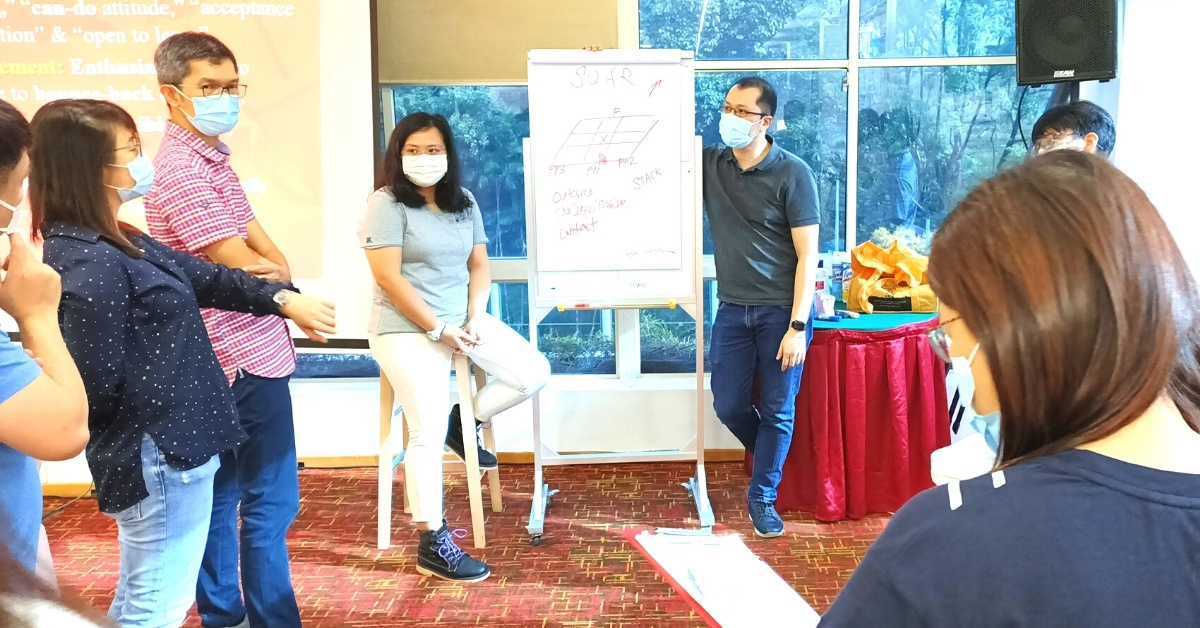
Systems thinking is not only the job of our mental intelligence. Here, Master Practitioners are developing their multi-dimensional systems thinking to evaluate their outcomes, manage complexity and generate robust solutions from different levels of thinking, feeling, communicating and engagements.
If you want to learn more about how to develop a systems thinking approach, book a consultation below.
5) Manage your expectations and frames by setting up micro-commitments.
In our fast-paced world, it's easy to get caught up in the expectations and frames that we set for ourselves. We often put pressure on ourselves to meet deadlines, achieve goals, and be perfect. This can lead to stress, anxiety, and even burnout.
One way to manage your expectations and frames is by setting up micro-commitments. Micro-commitments are small, manageable tasks that you can complete in a short period of time. They help you break down big projects into smaller, more manageable pieces.
Many times, we get mentally overwhelmed, physically restless and emotionally depleted or unsettled when we have too many 'open loops' or activities left hanging without a closure. This can lead to feelings of anxiety and stress. A micro-commitment allows you to 'close the loop' on a task, which gives you a sense of accomplishment and relief.
When you make a micro-commitment, you are also setting an intention for yourself. This helps to focus your attention and energy on the task at hand.
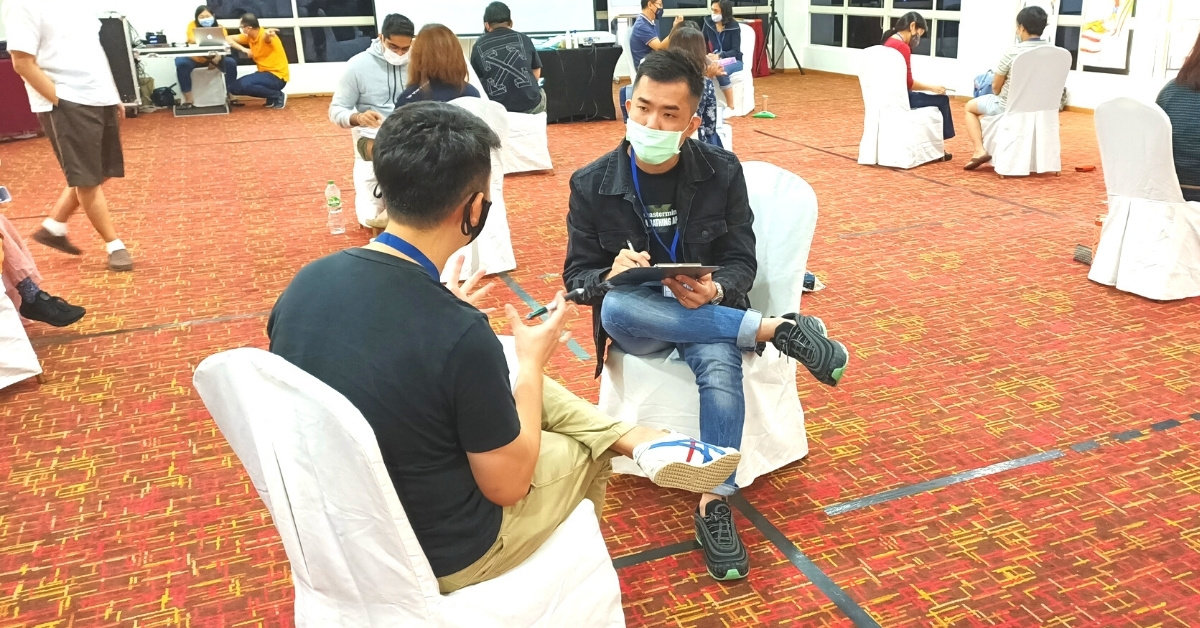
Master Practitioners exercising their ability to engage others through the way they manage their internal frames of references that facilitates the whole experience of engagements.
If you want to learn more about how to set up frames that enhance your performance and development, book a consultation below.
6) Expand your multi-intelligence capacity and bandwidth to deliver extraordinary value with Neuro-Actionables.
Many people think that in order to get to their next level, they just need to acquire new skills and expertise that will make them more valuable and employable.
However, this is not always the case. What's more important than what you know is how you think, how you communicate, rally, align and develop people, and how resourceful you are in finding sustainable solutions to challenges.
That's why it's essential to develop your multi-intelligence capacity that involves a whole range of your mental, emotional, physiological and spiritual intelligences. By expanding your bandwidth, you become more adaptable and resourceful in any situation, no matter how challenging it may be.
By expanding your multi-intelligence capacity, you will be able to:
Building on the principles of micro-commitments, Neuro-Actionables are a set of intentional exercises or activities designed to retrain your nervous system to respond to situations and people in a whole new way. These exercises help you expand your mental, emotional, physical and spiritual intelligences and capacity on a progressive basis as micro-commitments. They enable you to stretch yourself by adopting a different approach to your usual habits, emotional inclinations, personality patterns and communication styles, without overloading you.
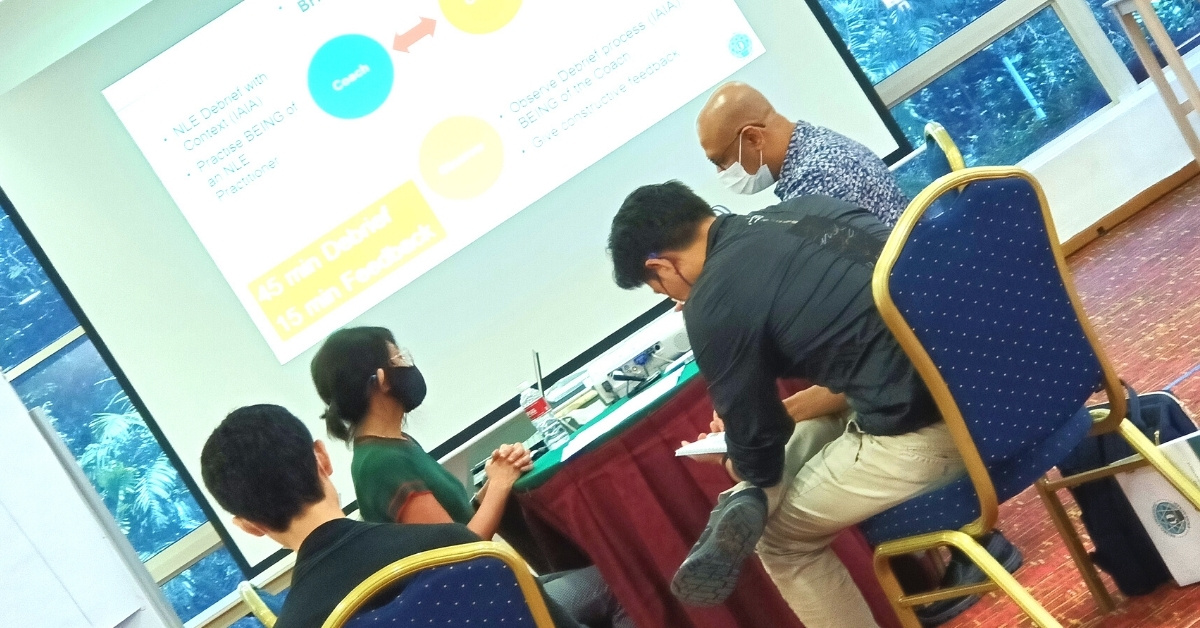
In Neuro-Linguistic Enneagram program, practitioners debrief clients and enable them to develop their mental, emotional, physical and spiritual capacity through Neuro-Actionables that are strategic to grow their personality development. They can facilitate the process through the profiler report and other tools such as the profiling cards and frameworks.
If you want to learn more about how to expand your multi-intelligence capacity using Neuro-Actionables, book a consultation below and we'll be more than happy to share with you.
The bottom line is that if you want to be truly productive and elevate your performance, it is about managing yourself rather than time. By developing your multi-intelligence capacity, you can be more adaptable, responsive and resourceful in any situation and deliver great value, especially in a VUCA (volatile, uncertain, complex and ambiguous) world.

